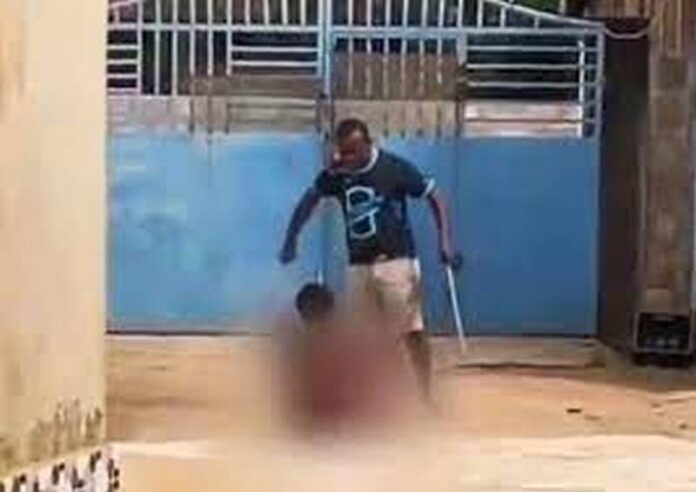The Minister for Gender, Children, and Social Protection, Dr Agnes Naa Momo Lartey, has expressed deep concern following a personal visit to the home of 32-year-old domestic abuse victim, Harriet Amuzu.
During the visit, the minister discovered that the victim is trapped in a hostile environment where relatives and neighbours believe that a woman who “talks too much” deserves to be beaten.
Speaking to JoyNews, Dr Lartey described the mindset within Ms Amuzu’s immediate surroundings as a severe threat to both the victim and her children.
The Pervasive “Talk Too Much” Mentality
The minister recounted her visit to the household, revealing a disturbing cultural belief system that normalises gender-based violence.
“I was in the home myself, and it wasn’t the best of situations. Those around the woman seem to have the same orientation that when a woman talks too much, she has to be beaten,” she said.
She added that this harmful ideology was openly shared by people within the same household, reinforcing the violence Ms Amuzu endured.
“Yes, same home. If they are watching me, they know what I’m talking about.”
This revelation highlights a significant challenge for the Ministry—confronting not only perpetrators of abuse, but the entrenched social norms that excuse and promote violence against women.
Surveys, including the Ghana Demographic and Health Survey (GDHS), have repeatedly found that a substantial number of both men and women believe wife-beating is justified under circumstances such as arguing, disobedience, or neglecting children.
Protection of Children Now a Priority
Dr Lartey stressed that urgent steps are needed to protect Ms Amuzu’s children, who are growing up in a home where violence is normalised.
“The long-term psychological impact on children who witness domestic violence can be severe, and it will be difficult to allow these children to grow up in that environment, especially without the guidance of a mom,” she said.
She indicated that the Department of Social Welfare will intervene to ensure the children are placed in a safe environment where they are not exposed to abusive behaviour or victim-blaming attitudes.
Minister’s Call to Action
The Ministry of Gender, Children, and Social Protection is expected to use this case to intensify its public education campaigns on domestic violence.
According to the Domestic Violence Secretariat, thousands of cases are reported nationwide each year, though many more go unreported due to stigma, fear of retaliation, and community pressure that discourages victims from seeking help.
ALSO READ:
Afoko urges youth to embrace civic courage at AUCB public lecture
Proxy voting is a national right, attempts to abolish it threaten…



